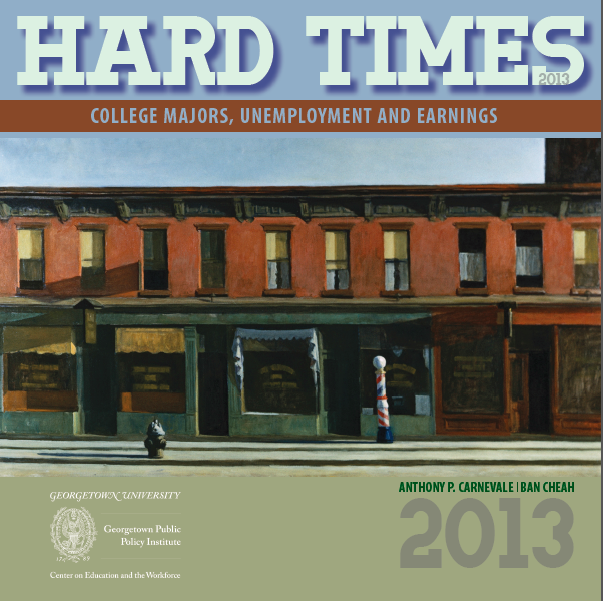Hard Times 2013
College Majors, Unemployment and Earnings
The Great Recession affected everyone, but recent college graduates have had continued difficulty finding jobs. The first edition of Hard Times shows that despite the sluggish recovery, the overall unemployment rates for recent college graduates have dropped 7.9 percent (2010), compared to the 8.9 percent (2009) unemployment rate.
Key Findings
Resources
The Great Recession affected everyone, but recent college graduates have had continued difficulty finding jobs. Despite the sluggish recovery, however, the overall unemployment rates for recent college graduates have dropped 7.9 percent (2010), compared to the 8.9 percent (2009) unemployment rate in the first edition of Hard Times.
In the past, a college degree all but assured job seekers employment and high earnings, but today, what you make depends on what you take. In Hard Times 2013, we show differences in unemployment and earnings based on major for BA and graduate degree holders. We show that STEM majors typically offer the best opportunities for employment and earnings, while unemployment is higher for graduates with non-technical degrees.

